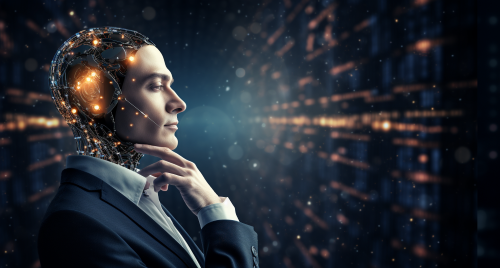
Artificial intelligence (AI) has the potential to revolutionize the professional landscape, raising concerns that CEOs and politicians might be replaced by highly capable AI systems. In the UK, the warning bells are already ringing, as politicians fear the emergence of “peerbots” mimicking their writing styles and voices, delivering speeches flawlessly and without hesitation.
Richard John Denison, a peer in the UK’s House of Lords, raised the alarm about the possibility of “Peerbots” taking over the roles of lawmakers. He questioned whether it was an exciting or alarming prospect that these “Peerbots” could possess deeper knowledge, higher productivity, and lower operating costs, posing a significant challenge to their human counterparts.
The notion of AI replacing politicians and CEOs finds support from Dan Hendrycks, the director of the Center for AI Safety, who has extensively studied the potential catastrophic consequences of AI. Hendrycks argues that AI could potentially evolve to the point of replacing politicians and high-level industry executives. He points to a Chinese corporation that has already appointed an AI as its CEO, indicating that people are increasingly open to the idea as long as AI performs adequately.
Hendrycks’ research suggests that the principles of natural selection could favor AI over humans in the marketplace, leading to the automation of more jobs and the displacement of everyday workers. The AI’s ability to work nonstop, think faster, multitask, manage numerous relationships or employees, and possess superhuman expertise in various domains gives it a significant edge.
While studies indicate that CEOs are currently less likely to be replaced by AI compared to other professions, there is growing interest among voters in employing AI as lawmakers. A study conducted in Europe in 2021 revealed that 51% of Europeans support the idea of replacing members of parliament with AI.
As AI continues to advance, its potential to replace professionals across various fields becomes increasingly evident. The ongoing debate surrounding the consequences of an AI-dominated workforce calls for careful consideration and responsible implementation to strike a balance between technological progress and societal welfare.


Pretty portion of content. I just stumbled upon your weblog and in accession capital to claim that I acquire actually enjoyed account your blog posts. Anyway I’ll be subscribing on your feeds and even I achievement you get admission to persistently fast.